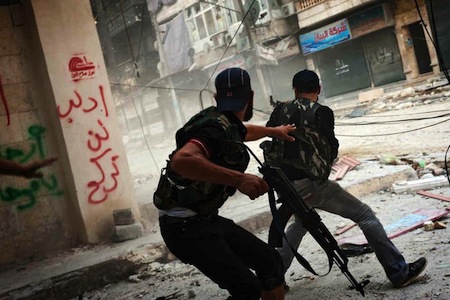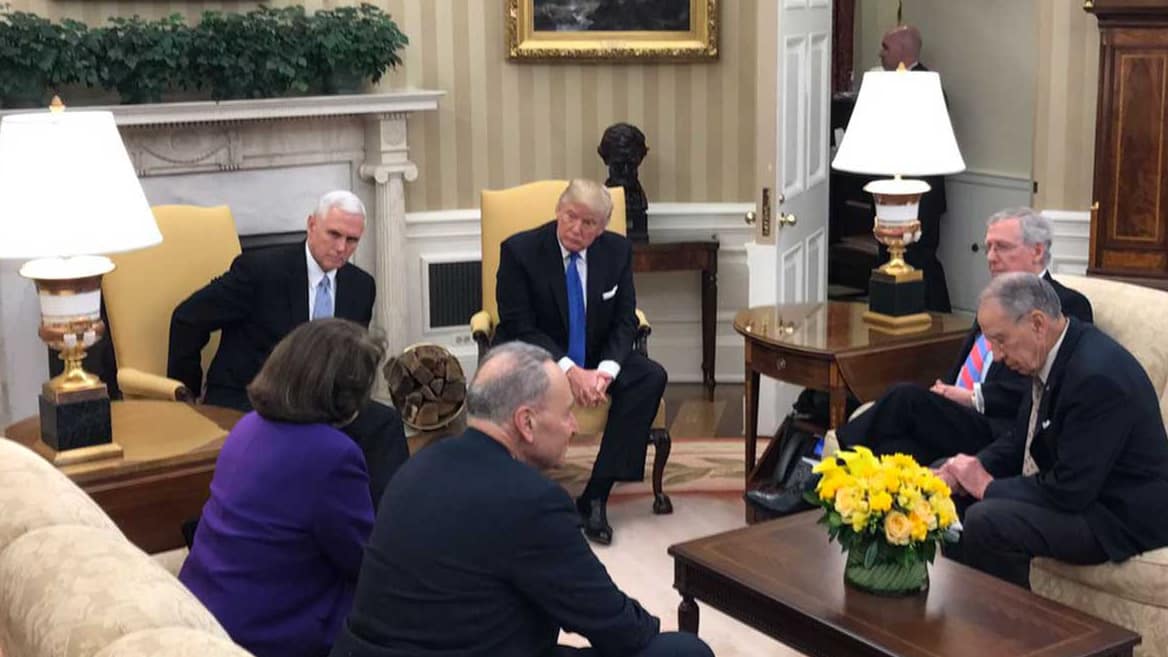 Centuries ago the Roman poet Horace wrote a line that has been famous ever since: Dulce et decorum est pro patria mori (“It is sweet and fitting to die for one’s country”). Innumerable political leaders have used it to create public enthusiasm for war.
Centuries ago the Roman poet Horace wrote a line that has been famous ever since: Dulce et decorum est pro patria mori (“It is sweet and fitting to die for one’s country”). Innumerable political leaders have used it to create public enthusiasm for war.
During the First World War, however, the English poet Wilfred Owen challenged Horace’s claim in a poem titled Dulce et Decorum Est. (The text is available online.) He wrote it while recovering from injuries sustained in battle, before returning to the trenches, earning a medal for valor, and losing his life.
The poem realistically describes the horrors of poisonous gas attacks and the agony experienced by the victims, then assures readers that if they could see and hear what he did, they would be reluctant to repeat Horace’s “old lie.”
Modern politicians seldom speak of how wonderful it is to die for one’s country. They don’t even speak of suffering and dying, preferring more opaque language.
They speak of “boots on the ground” rather than maimed and dead soldiers because boots don’t feel pain; “surgical strikes,” rather than indiscriminate mayhem because “surgical” suggests healing; and “collateral damage” rather than the slaughter of innocents because the former evokes no concrete images.
Advocates of war label every proposed military action a matter of “American interest” or “national security,” and they warn of dire unspecified acts of terrorism that will befall us if we don’t “act now.” That was their pitch for Vietnam, Iraq, and Afghanistan. And now they’re using it for Syria. The problem is, the situation in Syria is even more perplexing than any of those earlier ones.
After almost two years of civil war in Syria and over 100,000 killed, President Obama said a “red line” would be the use of chemical weapons. His aides reiterated that position. Later, after chemical weapons were used, the President declared that he didn’t set a red line—the world did! Then he sought authorization from congress for the use of force in Syria without, it seems, considering these crucial questions:
Will U.S. missiles and bombs terrorize and kill even more innocent Syrians than Assad has? Will the average citizen in Syria and neighboring countries see the assault as an act of American kindness or of bellicosity?
Will photos (real or fake) of women and children killed by the U.S. strike provide a recruitment tool for Al Qaeda and other terrorist groups?
Will a U.S. missile strike eliminate the chemical weapons? If so, will it in the process disperse the chemicals more broadly and kill thousands more people? If not, will our failure encourage Assad to use them again?
Will a U.S. strike drive Assad from power? If so, will it aid jihadist rebels in taking over the country, gaining control of the chemical weapons, and unleashing a bloodbath in and beyond Syria? If not, will it provoke Assad to retaliate against the U.S. and Israel and trigger a world war?
Will a U.S. strike incur the wrath of nations that support the Assad regime? If so, will that wrath be expressed in terrorist reprisals against the U.S. and its allies?
Will U.S. military action result in serious injury and/or death to the U.S. personnel involved? If deployment of troops is necessary after the initial strike, will the number of injuries and deaths rise to the thousands?
Will U.S. military action constitute unjustifiable aggression against Syria, as Vladimir Putin has charged? (The seriousness of the question is in no way diminished by Putin’s hypocrisy.)
As the country awaited the congressional vote on the President’s request, John Kerry made an offhand remark that placing Syria’s chemical weapons under international control might solve the problem. Putin quickly gave the idea his blessing and the President called it a “significant breakthrough” and put a hold on the congressional debate he had deemed urgent only days earlier.
Thus did an offhand remark save us, for the moment at least, from a Middle East conflict with potentially dire consequences far beyond that region. We should be thankful for Kerry’s fortuitous gaffe but troubled by the events that preceded it.
In this age of devastating weapons, we need leaders who think before they speak and act. Equally important, we need leaders who are sensitive to the realities described in Wilfred Owen’s sobering poem. Dying for one’s country may be “fitting” when one’s country has been unjustly attacked, but it is never “sweet.” And it is neither fitting nor sweet when occasioned by the mindless incompetency of government leaders.
Copyright © 2013 by Vincent Ryan Ruggiero. All rights reserved








